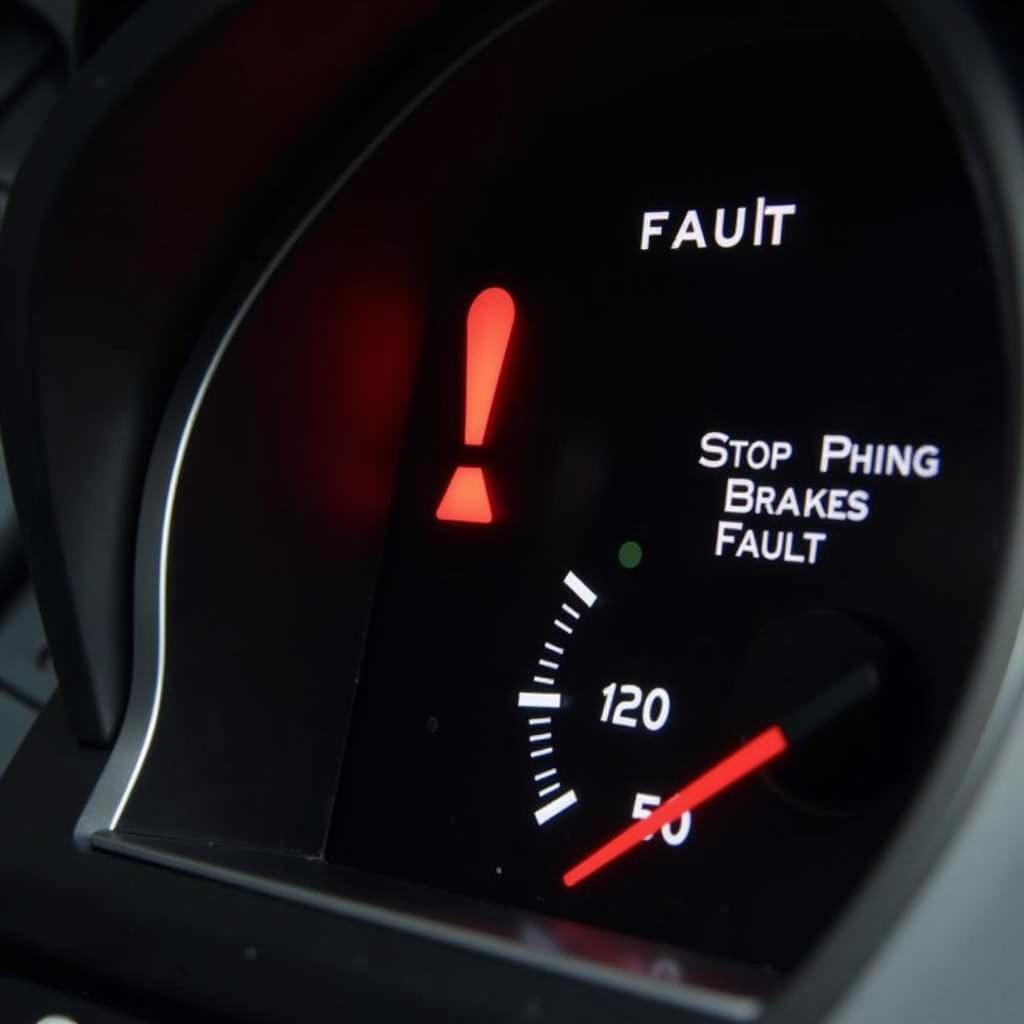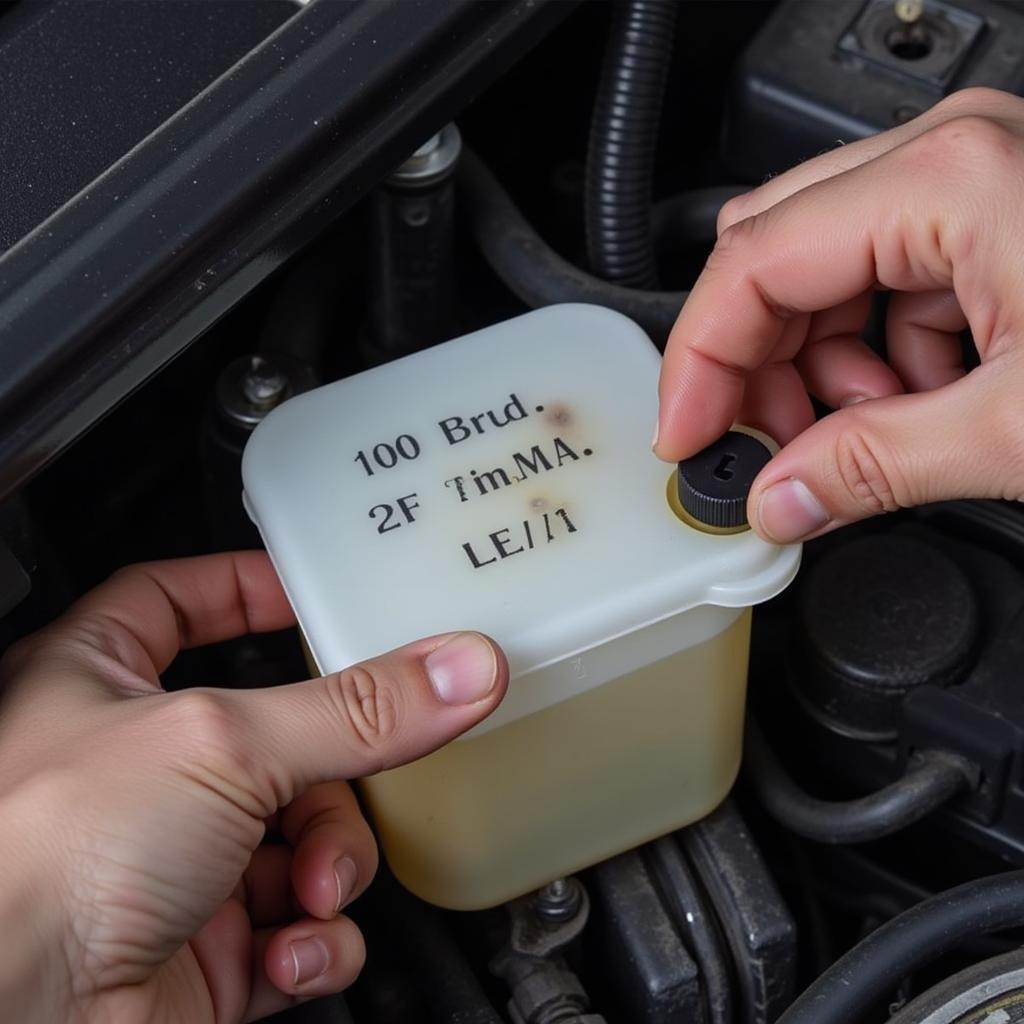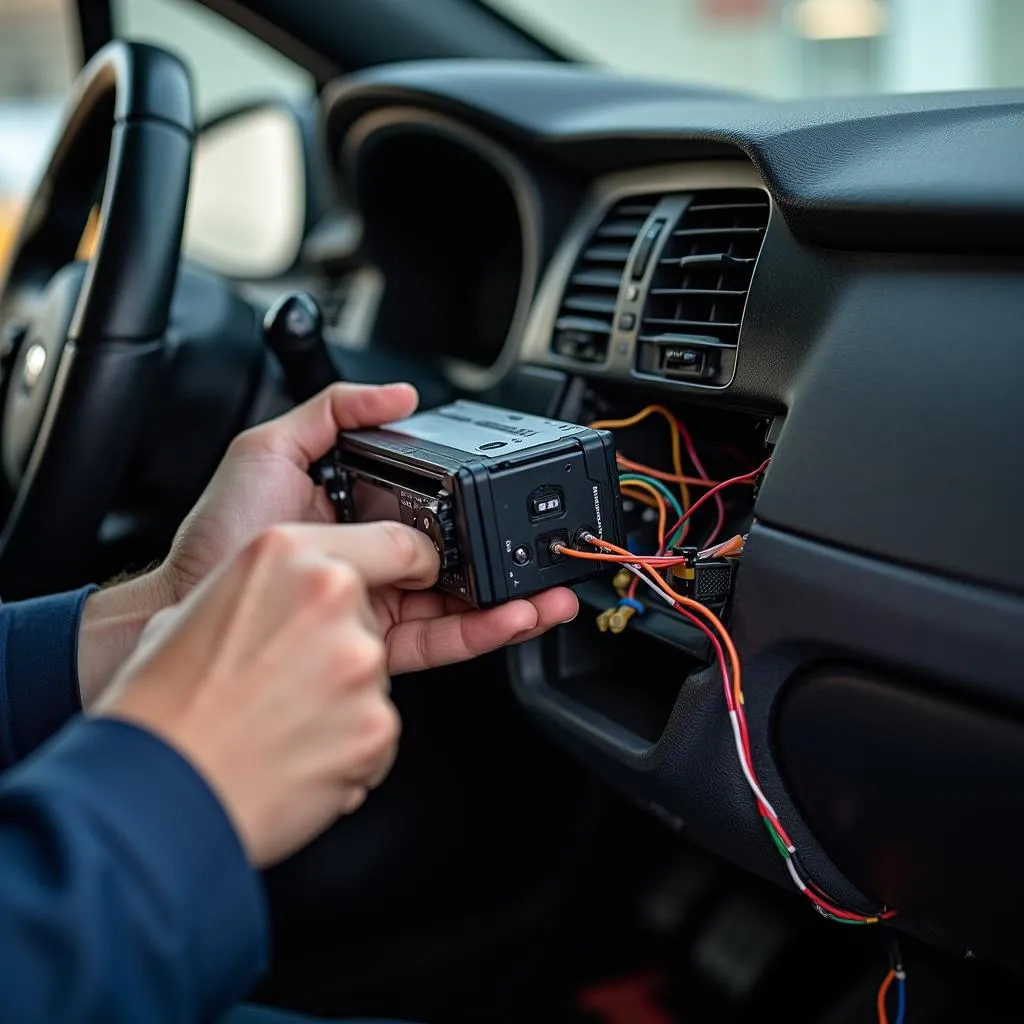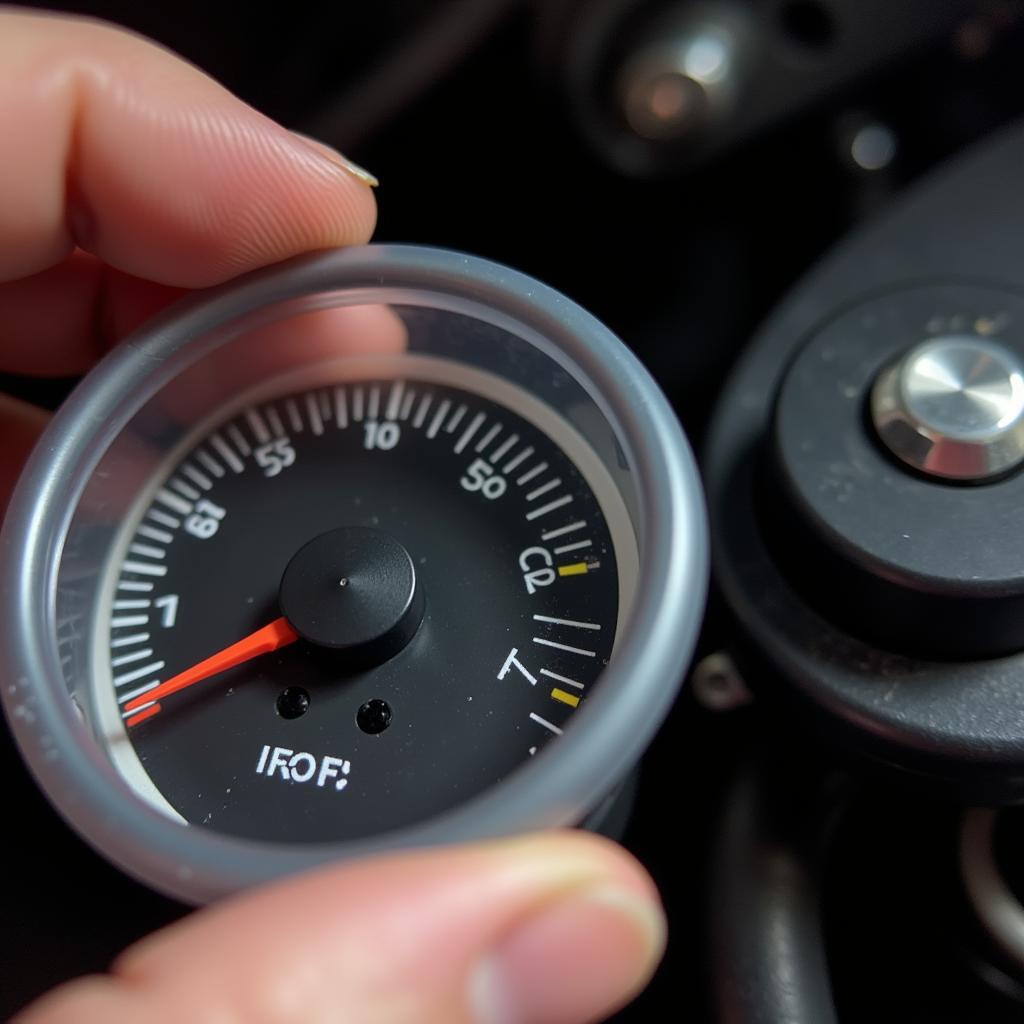The dreaded “Stop Brake Fault” warning light on your VW Passat can be a heart-stopping experience. This article dives deep into the causes, diagnostics, and solutions for this common issue, offering practical advice and expert insights to help you get back on the road safely.
Understanding the VW Passat Stop Brake Fault Warning
The “Stop Brake Fault” warning, often accompanied by a red exclamation mark and a chime, signals a problem with your Passat’s braking system. While it can be alarming, understanding the potential causes can help you assess the situation and take appropriate action.
Several factors can trigger this warning, ranging from low brake fluid to more complex issues like faulty sensors or a malfunctioning ABS system. Ignoring this warning can lead to serious safety risks, so prompt attention is crucial.
 VW Passat Stop Brake Fault Warning Light Display
VW Passat Stop Brake Fault Warning Light Display
Common Causes of the Stop Brake Fault Warning
One of the most common culprits is low brake fluid. Check your brake fluid reservoir immediately. A low level indicates a leak or worn brake pads, requiring immediate attention. Other potential causes include:
- Worn Brake Pads: Thin brake pads trigger a sensor that activates the warning light.
- Faulty Brake Fluid Level Sensor: A malfunctioning sensor can incorrectly report low brake fluid even when levels are adequate.
- ABS Issues: Problems with the Anti-lock Braking System (ABS), such as a faulty wheel speed sensor or control module, can trigger the warning.
- Brake Light Switch Malfunction: A faulty brake light switch can sometimes cause the warning light to illuminate.
- Wiring Problems: Damaged or corroded wiring in the braking system can disrupt communication and activate the warning.
Diagnosing the Problem
Diagnosing the exact cause requires a systematic approach. Start with the simplest checks:
- Check Brake Fluid Level: Inspect the reservoir and top it off if necessary. If the level is consistently low, suspect a leak.
- Inspect Brake Pads: Check the thickness of your brake pads. If they are worn, replacement is necessary.
- Scan for Fault Codes: Use a diagnostic scanner to retrieve any stored fault codes related to the braking system. These codes can pinpoint the specific area of concern.
 Checking VW Passat Brake Fluid Reservoir
Checking VW Passat Brake Fluid Reservoir
“Regular maintenance is key to preventing brake issues. Checking your brake fluid and pads regularly can save you from unexpected headaches and costly repairs,” advises John Miller, ASE Certified Master Technician.
Solutions and Repairs
Depending on the diagnosed issue, the solution can range from simple DIY fixes to more complex repairs requiring professional assistance:
- Low Brake Fluid: Top off the fluid and monitor the level closely. If it drops again quickly, have a mechanic check for leaks.
- Worn Brake Pads: Replace the brake pads.
- Faulty Sensors: Replace the faulty brake fluid level sensor, wheel speed sensor, or brake light switch as needed.
- ABS Issues: Address the specific ABS problem identified by the fault codes. This may involve replacing components or repairing wiring.
- Wiring Problems: Repair or replace damaged or corroded wiring.
Remote Diagnostics and Programming
For complex issues, remote diagnostics and programming can offer efficient solutions. Specialized software allows technicians to access your vehicle’s systems remotely, identify problems, and even reprogram certain modules. This can save time and money, especially for software-related issues.
What if the Warning Light Persists?
If the “Stop Brake Fault” warning light persists after addressing the common causes, consult a qualified mechanic immediately. Driving with a persistent brake warning light can be dangerous.
“Ignoring a persistent brake warning light is like playing Russian roulette with your safety. Get it checked out by a professional to avoid potential disaster,” cautions Sarah Chen, Automotive Safety Expert.
Conclusion
The “Stop Brake Fault” warning on your VW Passat should never be ignored. By understanding the potential causes, following the diagnostic steps, and seeking professional help when needed, you can ensure your Passat’s braking system is in top condition, keeping you and your passengers safe on the road.
FAQ
- What does the “Stop Brake Fault” warning light mean? It indicates a problem with your Passat’s braking system, requiring immediate attention.
- Is it safe to drive with the “Stop Brake Fault” warning light on? No, driving with this warning light can be dangerous. Seek professional help immediately.
- How do I check my brake fluid level? Locate the brake fluid reservoir under the hood and check the fluid level against the minimum and maximum markings.
- Can I fix the problem myself? Some simple issues like low brake fluid or worn brake pads can be addressed with DIY fixes. However, more complex problems require professional assistance.
- What if the warning light stays on after topping off the brake fluid? This suggests a more serious issue, such as a leak or faulty sensor. Consult a mechanic.
- How can remote diagnostics help? Remote diagnostics can identify complex issues quickly and efficiently, potentially saving time and money.
- Where can I find a qualified mechanic for my VW Passat? Look for ASE certified mechanics specializing in Volkswagen vehicles.


